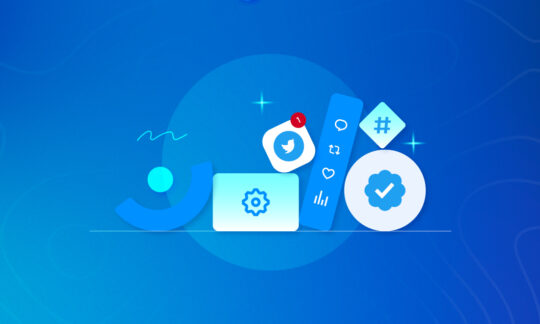5 key questions on social media data access & privacy concerns
Let’s answer the top 5 most commonly asked questions about Facebook and Instagram data. Read on to learn about social media regulations and how SentiOne accesses Facebook data.
Are the recent stories about privacy breaches within the industry making you concerned whether you’re using social data properly? Amid public concerns over the Cambridge Analytica scandal and post-GDPR penalties for improper data processing – we need to reassess how we handle data from social media networks, and whether we do so in an ethical manner. We’ve had a number of questions come in about how SentiOne is affected by this, so we thought we’d address them by answering the top 5 most commonly asked questions about our data access.
Why is social monitoring important for marketers?
First, let’s establish why social listening is important in the current digital marketing landscape. It is a powerful tool that can help you monitor, aggregate, and analyse every conversation on a given topic happening on online channels. However, a lengthy list of all online mentions is not very useful, which is why modern tools provide you with insights, alerts, or reports. Marketers use social listening for a number of reasons, but these are the most common use cases we encounter:
Online Brand Reputation
88% of people research companies online before purchasing a product or a service – you need to know how your brand is discussed online. With social media listening you can monitor the context of discussions and analyse your brand sentiment.
Market Research
By monitoring important keywords and terms you can conduct full market research based on people’s opinions, sentiment and feedback.
Audience Insights
Understanding your audience, their preferences and motivations is key in digital marketing. Identify the right target groups by pulling insights from customer analytics. You can access data such as gender breakdown, geolocation or most popular channels of discussions.
Competitive Research
Once you have analysed your own brand keywords, got insights about your audience and the wider market – you can also capture competitive intelligence on other players on the market. Monitor their online activity, marketing campaigns and key influencers to differentiate your digital strategy.
What are the recent changes in Facebook and Instagram data access?
There is no straightforward answer to this question. Remember that Facebook and other social media networks review their policy on a regular basis and constantly make small adjustments. With each of these changes all social media monitoring tools – like SentiOne – need to pass a Facebook review in order to regain access to the data.
March 2018 – The first wave of changes post-Cambridge Analytica.Immediately after the Cambridge Analytica scandal broke, Facebook announced a number of API changes aimed at better protecting user information. Some of the APIs were shuttered for low adoption, while others would require app reviews going forward. It was necessary to manage the PR damage, as well as to reduce the amount of personally identifiable information (PII) being shared with brands and other companies. While it is a step in the right direction for Facebook, it had far-reaching consequences which fundamentally changed the social media monitoring landscape.
May 2018 – General Data Protection Regulation. Another wave of changes came about as a result of a European Union regulations – GDPR – which aims to protect individual consumers and give them more control over their data. There are many implications and changes it brings. The most important takeaways are that brands are now required by law to be transparent about the way they collect and handle personal information, and that they must provide that information and obtain consent before starting data collection.
October 2018 – Instagram new public content API – with limitations. Following another batch of changes, it is now possible to track Instagram hashtags with the new Graph API. However, there are two main restrictions. Access to the new Graph API is limited to Facebook users who operate a Page linked to an Instagram Business account. There’s also a limit of thirty tracked hashtags per page. As SentiOne passed all Facebook and Instagram reviews you can safely monitor Instagram channels as well as track hashtags, but only within those limitations.
December 2018 – Closure of Instagram old public content API. As per the Facebook announcement, collecting data from targeted hashtags will no longer be allowed through the legacy (as in, the one from before the Facebook acquisition) Instagram API
August 2019 – Facebook policy change regarding Public Content access. The latest change concerned Public Content access for non-authorised fan pages. There are no major implications for SentiOne here, as we have (once again!) passed the last review and received a green light for data access.
What types of data can we currently access?
Facebook:
- Comments and posts made by brands as well as anonymous individual users
- Reviews
- User posts and comments which mention an authorized fanpage
- Ad posts from authorised accounts (eg. dark posts)
- Private messages sent and received by authorised pages
Instagram:
- Posts on authorised accounts, as well as those that tag said account
- Comments on an authorised account’s posts, as well as comments that tag said account
- Instagram Stories on authorised accounts
- Posts from other business accounts
What are we not allowed to access, due to API restrictions or GDPR regulations?
Facebook:
- Information about the authors of Facebook posts. This data is protected in accordance with Facebook’s personal data protection policy.
- Monitoring of groups and events on Facebook is no longer possible (unless the brand is the owner of the group).
- Facebook Stories and Events are not available for social media monitoring under current API access rules.
- Monitoring of comments on posts from unauthorized accounts is no longer possible.
- User comments with hashtags are not available for monitoring under current API access rules.
- Replies to Instagram Stories cannot be tracked within the current API.
- Private messages cannot be accessed through the current API.
Both:
- For unauthorized accounts we can only collect public data from fan pages or business accounts
- Content that needs authorization is only visible to SentiOne user who authorized account and users within their company
- We obtain data only through official APIs. Our access permissions are managed by the platform owners and are reviewed on a regular basis.
- We’re fully GDPR compliant in our data handling.
So what should marketers do now?
While these changes may seem confusing, rest assured – the vast majority of online data is still available for you to monitor, analyse, and use in your marketing strategy. To make the transition easier, we prepared a list of tips and tricks to ensure your online listening is effective and perfectly safe:
- Facebook and Instagram remain the key channels for online market research. You can use all of their data in a way that does not identify anyone in particular. Focus on aggregated information: what are the trends, patterns and insights? Which piece of content is resonating with your audience? What is the brand sentiment of your competitor? How did your marketing campaign perform in terms of reach and engagement? All perfectly valid questions.
- Mix Facebook and Instagram data with other sources! Don’t forget about Twitter – in some markets it is the number one channel. There is also a very long list of channels with a wide range of online conversations, such as website comments, blogs, and forums. SentiOne has access to YouTube, Google Reviews, VKontakte, TripAdvisor, Amazon, Reddit, G2 Crowd, news websites, portals and many, many more.
- Social media is a 24/7/365 roller coaster. Ensure you have instant access to all of your data. Set up social media alerts to detect anomalies, such as unusual spikes or drops in mentions.
- Be a socially responsible marketer. Analyse data at an aggregated level. Choose your tools and 3rd party data providers wisely. When creating content and campaigns, make sure you are transparent with your data usage. Finally, always allow people to opt out.
We hope that these answers will provide you with enough information, clarity and guidance to navigate the current social media landscape. Rest assured – we are here for you, providing you with accurate and compliant data around the clock. If you have any more questions, feel free to reach out to us.
SentiOne has successfully passed all Facebook reviews since March 2015 as a part of their social network’s regular screening and auditing. The last review was conducted on October 16th, 2019.
This article is accurate as of October 30th.



